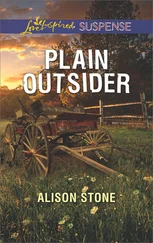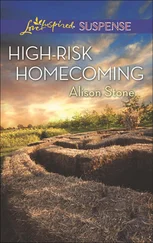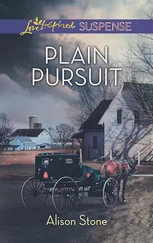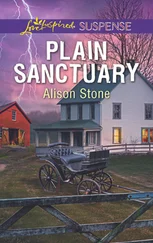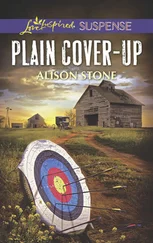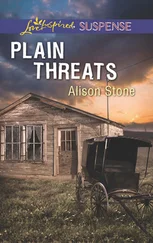The driver, an older gentleman, dropped Grace off at the local library and promised to return in one hour to bring her home. Grace climbed out of the van and smiled at an Amish woman hustling past with three young daughters in tow. The thick fabric of their bonnets kept their heads warm. Their long dresses poked out from under black coats. The fabric brushed the edge of the shoveled walkway, collecting clumps of snow. Nostalgia pricked the back of Grace’s eyes. Another generation ago, that could have been her and her sisters.
Grace held her collar closed and strode toward the main entry of the quaint library. Ever since retired Sheriff Gates had mentioned the articles in the Quail Hollow Gazette about her mother’s murder, Grace couldn’t get them off her mind. She tried Googling and using some of her research tools to find the articles online, but came up empty. At first, Grace took it as a sign that she needed to let the past stay in the past.
Her initial curiosity had been followed by a restless night and a growing determination that hollowed out the pit of her stomach. Grace hadn’t become a top-notch reporter by allowing a dead end to stop her.
After alternating between “let it go” and “just read the articles already,” she decided only the latter would allow her to move on. Besides, there couldn’t be much to go on in the articles since no one had ever been arrested. Grace needed to squelch her obsessive curiosity, a quality that usually served her well.
She carefully made her way up the salt-covered walkway. She entered the library and drew in a deep breath. The smell of books filled her nose. Something felt familiar. Grace had always loved to read, and she wondered if perhaps her mom had brought her here. Instilled in her a love of reading.
Or maybe that had come later, growing up in Buffalo.
Grace approached the librarian. “Where can I find articles from the Quail Hollow Gazette?”
“Oh, the Gazette went under—” she hesitated, giving it some thought “—fifteen years ago.”
“Do you have copies of the paper from the 1990s?” Grace didn’t want to tell the librarian exactly what she was looking for because she didn’t want to invite questions.
“We have clippings of the more important articles from the paper filed chronologically in the basement.” The librarian emphasized the word basement, apparently trying to dissuade her.
“Is the basement open for patrons to do research?”
The librarian planted her hands on the desk and pushed to her feet. “Um, Linnie, I’m going to show this woman where the archives are in the basement,” she said to her colleague, also behind the desk.
“Thank you,” Grace said, hoping her gratitude would make the woman feel like her trouble was worth it. She had met all kinds during her travels, from those eager to tell her their life story, to those who seemed bothered by the idea of doing their job. Yet in Grace’s experience, whatever her reception, she chose to be pleasant. It proved to be disarming—most of the time.
The librarian muttered something as she led Grace down a back hall marked with an overhead exit sign. She moved surprisingly quickly despite her short, choppy steps and the narrow purple dress she wore. She stopped at a door before the emergency exit. With the key on a lanyard around her neck, the librarian unlocked the door, reached in and flipped on the lights. “I’ll show you the files, and then I have to get back upstairs to help Linnie. The library gets busy in the afternoon with all our after-school programs.” She squared her shoulders with a sense of pride.
“That’s fine.” Grace preferred to do her research without anyone standing over her shoulder, anyway.
The fluorescent lights buzzed to life in the basement. The librarian led her down the stairs, past a row of shelves stacked with books with identical bindings to a series of gray filing cabinets along a cement wall. The librarian planted her hand on the top of the cabinet, then pulled it away and swiped her hands together. “It’s a little dusty down here. Most libraries have this information on microfiche or digital but, well, we don’t have the budget for that.”
“I understand.” Grace hoped her cheery yet sympathetic tone was effective. She didn’t know how long she’d be here or if she’d need to come back, and she wanted the librarian on her side.
The woman clasped her hands in front of her. “What dates are you looking for?”
The filing cabinets were neatly labeled with month, day and year ranges. As long as the newspaper clippings were filed correctly according to date, she’d be able to search the articles at the time of her mother’s murder. She touched the handle of the closest cabinet. “I see the files are labeled. I’ll be fine.”
“Well—” the woman pursed her lips “—don’t refile anything. Place any files you pull out on the desk over there. I’ll refile them at a later date. Because if you don’t put them in the right spot—”
“No one will ever be able to find the article they’re looking for in the future.”
The woman leaned back on her heels, apparently satisfied. “When you’re done, let me know. I’ll be at the information desk upstairs.”
“Thank you.” Grace watched the librarian walk down the narrow aisle, the bookshelves lining one side and the filing cabinets the other, her heels clacking on the cement floor. The librarian disappeared around the corner, and Grace waited until she heard the basement door click shut.
Finally alone, Grace ran her fingers along the labels on the drawers and stopped on October of that fateful year. Her knees grew weak, and a darkness crowded the periphery of her vision. Was she about to open Pandora’s box?
Should she or shouldn’t she?
Drawing in a deep breath, she slid open the first cabinet drawer. She’d come this far. She’d check out a few articles, that’s all. Inside the drawer, manila folders were labeled with exact dates. She slid out the folders from a few days before to a few weeks after her mother’s body was found. She carried the stack to a desk at the far end of the aisle, pulled out a chair and sat. She squinted up at the flickering overhead lights, wishing there was a desk lamp. Not many people must use the basement.
She opened the folder dated the day after her mother’s body had been found.
Amish Woman Found Dead.
Her mother’s life had been reduced to a four-word headline. No name. Simply “Amish Woman.”
The black words on the yellowed paper swam in her field of vision. Blinking, she traced the letters, as if it provided a connection to her mother.
As she slowly read the article, she imagined the writer, fingers flying over the keyboard, jazzed to write about something more substantial than cows escaping through broken fences. A quiver rippled through her stomach. Was she any different?
She shook the thought away and focused on the article. It didn’t provide any significant information that she hadn’t already known. Her mother had gone into town to sell pies. The waitress oozed with pleasantries on how wonderful a person Mrs. Miller had been and then digressed into the usual platitudes: what an awful tragedy, her poor daughters, how had someone dumped her body in the family barn without being seen? It was almost too much to read.
Breathing slowly through her nose, Grace tried to calm her nerves. She pulled out another article and squinted at the black-and-white photo taken from a distance. Was that her with her father and sisters? The hairs on her arms prickled to life. Her grandma’s house—the site of her sister’s bed & breakfast before it had been updated—stood in the background. She recognized the tree out front and the porch. Emotions she wasn’t ready to explore coursed through her.
Читать дальше


